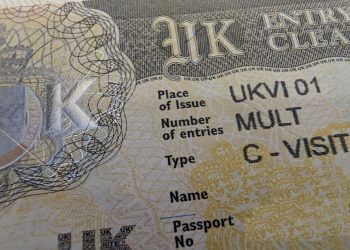Embarking on the journey to obtain a Luxembourg work visa in 2024 can seem daunting, especially for non-EU citizens. To ease this process, I’ve compiled a streamlined, step-by-step guide, ensuring you navigate through the application seamlessly. But before that, the point is to find out which of the job occupations are in high demand in Luxembourg because for those professions Luxembourg employers will be permitted to hire internationally qualified professionals in 2024.
So for that reason finding skill-shortage occupations and the latest job opportunities in Luxembourg doesn’t have to be overwhelming. Luxembourg’s vibrant economy is actively seeking skilled professionals in various sectors, highlighting a significant demand for talent across multiple industries.
In-Demand Professions in Luxembourg:
As per Guichet and CEDEFOP, the following is the latest list of skill shortage professions in Luxembourg:
– Financial Services: Seeks Investment Bankers, Wealth Managers, Risk Management Specialists, and Compliance Officers.
– Information Technology: Includes Software Engineers, Cybersecurity Specialists, Data Analysts, and IT Project Managers.
– Healthcare: Has a high need for Doctors, Nurses, Psychologists, and Pharmacists.
– Engineering and Manufacturing: Requires Mechanical, Civil, Electrical, and Production Engineers.
– Other Areas: Includes Logistics, Hotel and Tourism Industry professionals, Legal Experts, and Multilingual Professionals.
Where to Find Skill Shortage Jobs in Luxembourg in 2024?
– ADEM (National Employment Agency): Their website is a treasure trove of information, listing jobs in high demand under “métiers en pénurie” (professions in shortage). They also issue a quarterly report detailing the skill shortages in Luxembourg so, check out their offerings here.
– Guichet.lu: This official government portal is regularly updated with information on occupations experiencing shortages and you can visit them here.
– Cedefop (European Centre for the Development of Vocational Training): An invaluable EU resource that provides extensive reports on mismatch priority occupations, including specific data for Luxembourg. So, explore their insights here.
– Specialized Websites: Websites like Eurostat offer comprehensive data on skill shortages across the EU. Similarly, the Luxembourg Ministry of Economy sheds light on sectors that are in dire need of skilled workers. Visit Eurostat here and the Ministry of Economy here.
Luxembourg Work VISA Application Submission Process
Step 1: Check Your Eligibility
To qualify for a Luxembourg work visa, applicants must be non-EU/EEA/Swiss citizens and hold a valid passport, with at least three months’ validity beyond their intended departure from Europe and two blank pages. A key requirement is a one-year minimum employment contract with a Luxembourg company, with the employer having registered the employment at the National Employment Agency (ADEM) in Luxembourg.
Additionally, applicants may need to obtain temporary authorization, provide proof of qualifications, a medical certificate, and demonstrate sufficient financial resources, along with having appropriate travel and health insurance.
Step 2: Apply for Temporary Authorization to Stay
To commence your journey towards obtaining a Luxembourg work visa, the first step is to apply for a “temporary stay authorization” (autorisation de séjour temporaire). This application can be done online through the Immigration Directorate’s website at guichet.lu.
Step 3: Apply for Type D Visa Application
Once you have received your temporary authorization, the next step in securing your Luxembourg work visa is to apply for a long-stay type D visa. This application should be made at a Luxembourg embassy or consulate in your home country.
Step 4: Procedures Upon Arrival in Luxembourg
– Declaration of Arrival: Register at your local administration office within 3 days of arrival.
– Mandatory Medical Exam: Undergo this exam as part of the process.
– Residence Permit Application: Apply for a “titre de séjour” within 3 months of your arrival.
Finding Skill Shortage Jobs in Luxembourg in 2024
Explore various resources for job opportunities:
– Government Resources: The Luxembourg National Employment Agency (ADEM) website here.
– Online Job Boards: Platforms like Indeed, LinkedIn, and Jobs.lu.
– Specialized Websites: Resources like Eurostat and the Ministry of Economy’s website for skill shortages in the EU.
What would be Your and Your Employer’s Role in VISA Application?
1# Your Responsibilities: Document gathering, applying for temporary authorization and D visa, registering upon arrival, and applying for the residence permit.
2# Employer’s Responsibilities: Providing a valid employment contract, ensuring compliance with local hiring requirements, and offering support during the process.
Estimating Financial Requirements:
The visa fees you’ll encounter include €70 for the Temporary Authorization and €80 for the D Visa. Besides these fees, living expenses in Luxembourg, encompassing accommodation, food, utilities, and transportation, can range from approximately €2,200 to €2,400 per month. Additionally, you’ll need to demonstrate financial stability through your bank statements, showing sufficient funds to cover at least 3-6 months of living expenses, ideally between €3,000 and €5,000.
Still have some travel questions? Ask in our Travel WhatsApp Group.








